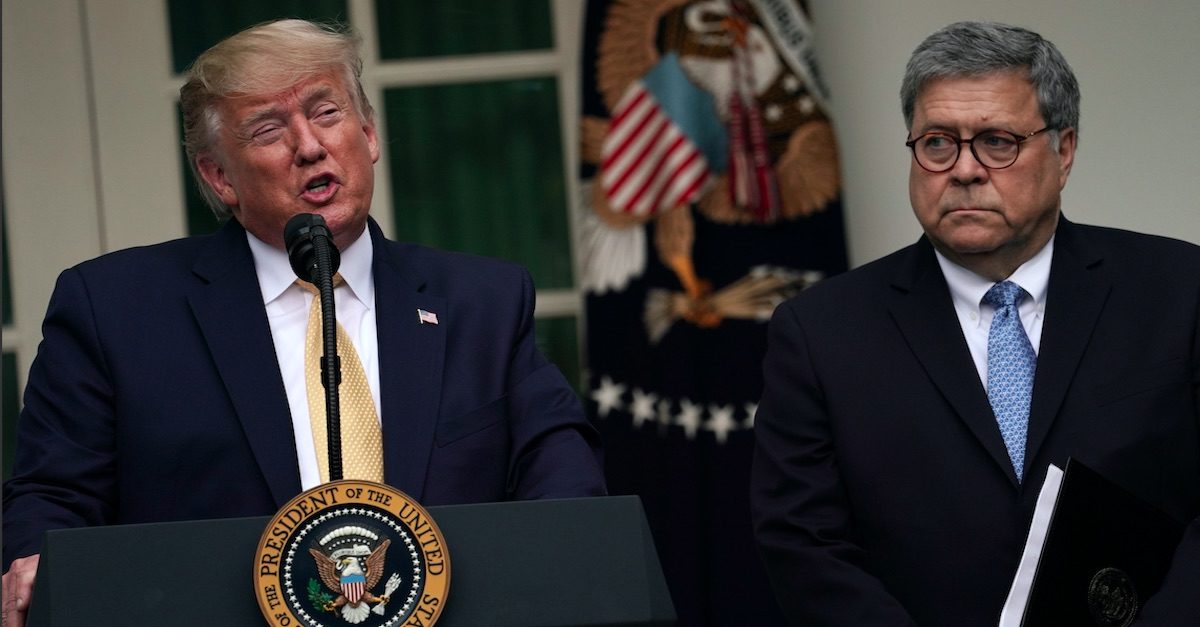
The Department of Justice on Monday filed an amicus curiae brief on behalf of President Donald Trump, in which attorneys for the government argued that congressional subpoenas for the financial records of Trump, his family, and the Trump Organization should not be enforced.
An amicus curiae (Latin for “friend of the court) brief is a persuasive legal document filed by a person or entity that is not a party to the case but maintains an interest in the outcome of the proceeding. Here, the amicus brief was submitted by attorneys employed by the DOJ, in support of Trump’s appeal of a district court’s decision in May. The district court permitted enforcement of the subpoenas.
U.S. District Judge Edgardo Ramos previously ruled that Deutsche Bank and Capital One could turn over the financial documents requested by the House Financial Services and Intelligence committees. In rejecting Trump’s effort to block the Congressional demand, Ramos reasoned that while the subpoenas were “undeniably broad,” they were also “clearly pertinent” to Congress’ authority in seeking documents for a legislative purpose. Ramos also stated that Trump’s reasons for not turning over the documents were “not sufficiently serious as it relates to Supreme Court precedent.”
In the brief, DOJ attorneys argued that the congressional subpoenas raised “significant separation of powers issues,” which could have an adverse effect on the operation of the government, particularly for the Executive Branch.
“Demands by the Legislative Branch for the personal records of the coequal head of the Executive Branch may, at a minimum, ‘distract him from the energetic performance of [his] constitutional duties,’” the attorneys wrote.
The brief also said that Ramos’ ruling was fundamentally flawed, stating that the decision “misunderstands the law,” which they claim required Congress to provide particularized evidence of a legitimate legislative purpose.
“Especially when congressional inquiries implicate other constitutional interests, courts need not and indeed cannot rubberstamp an inquiry that “radiate[s] outward infinitely to any topic thought to be related in some way” to “the core of the investigations […] The district court here could and should have determined whether Congress had demonstrated the need for ‘particular inquir[ies]’ or established ‘the relative necessity of specific disclosures,’” the DOJ said of Ramos’ ruling.
Hammering on this point, the DOJ reiterated throughout the brief that the congressional subpoenas for the Trumps’ financial information did not serve a “legitimate legislative purpose,” and contended that the appellate court was obligated to overturn Ramos’s ruling and examine whether there was a sufficient nexus between the information subpoenaed and a particularized legislative purpose.
Regardless of the target, a congressional subpoena’s validity presents questions ‘of unusual importance and delicacy.’ A court must determine whether the congressional demand serves a legitimate legislative purpose (e.g., to enact valid legislation), whether the information sought is pertinent to the legitimate purpose, and whether Congress’s need for the information outweighs any constitutional interests of the individual resisting the inquiry.
The DOJ also argued that the appellate court should invalidate the subpoenas as being “overly broad” and require Congress to re-issue requests which are narrower in both scope and breadth.
“Having determined the subpoenas were ‘undeniably broad,’ the court should have required the Committees to proceed in a more tailored manner before ‘push[ing] to the fore difficult questions of separation of powers and checks and balances’ that could otherwise be avoided,” the DOJ said.
DOJ Amicus Trump Deutsche B… by Law&Crime on Scribd
[image via Alex Wong/Getty Images]